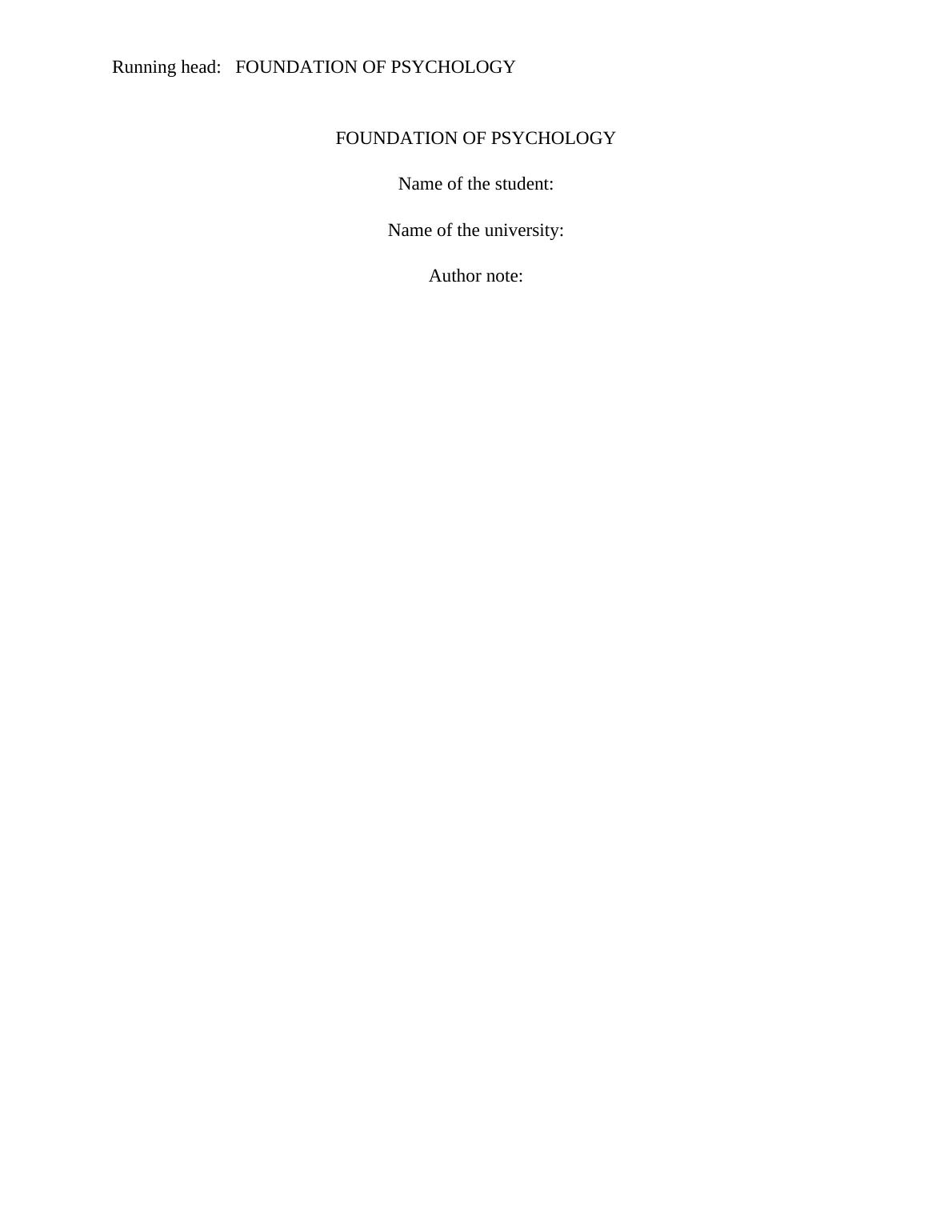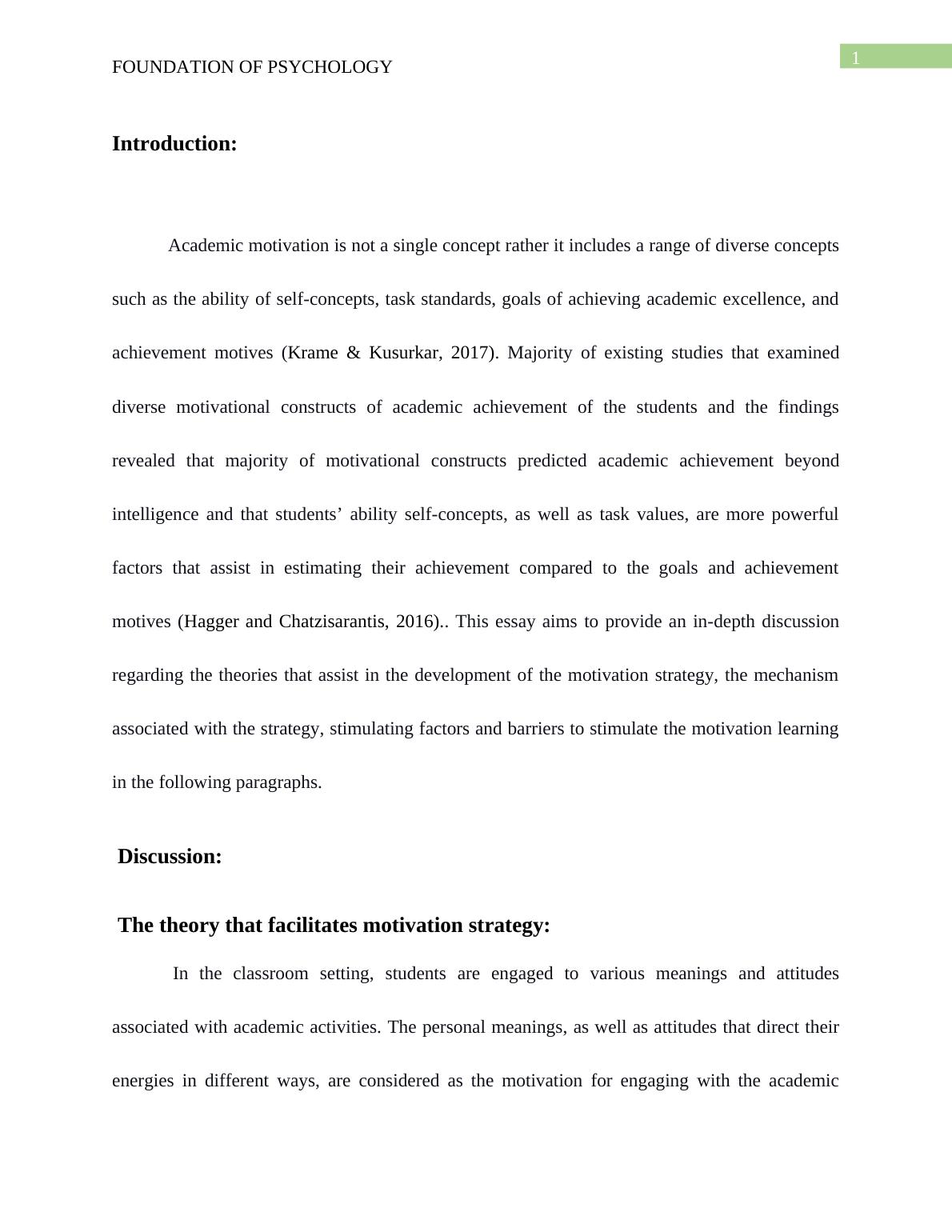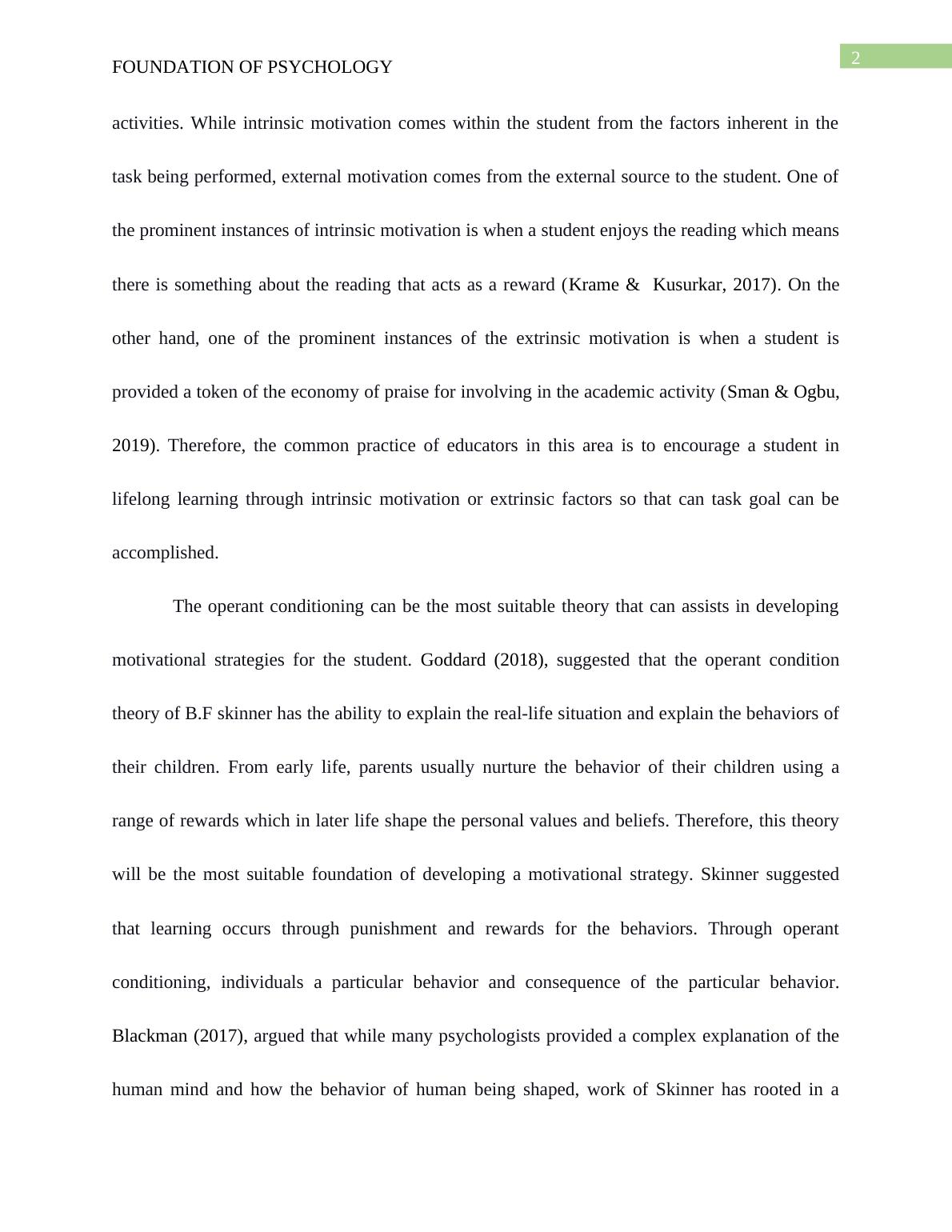THE FOUNDATION OF PSYCHOLOGY
Added on 2022-08-22
9 Pages2057 Words15 Views
End of preview
Want to access all the pages? Upload your documents or become a member.
Understanding why people work
|7
|1951
|100
Organisational Behavior: Difference between Extrinsic and Intrinsic Motivation
|11
|2696
|91
The procedure of teaching and learning
|7
|1514
|27
Understanding Why People Work and the Role of Motivation
|7
|1826
|104
Motivating Factors at Workplace: Meaning, Theories, and Strategies
|8
|1884
|95
Leadership and Organizational Behavior: Motivation and Organizational Commitment
|6
|1334
|380



